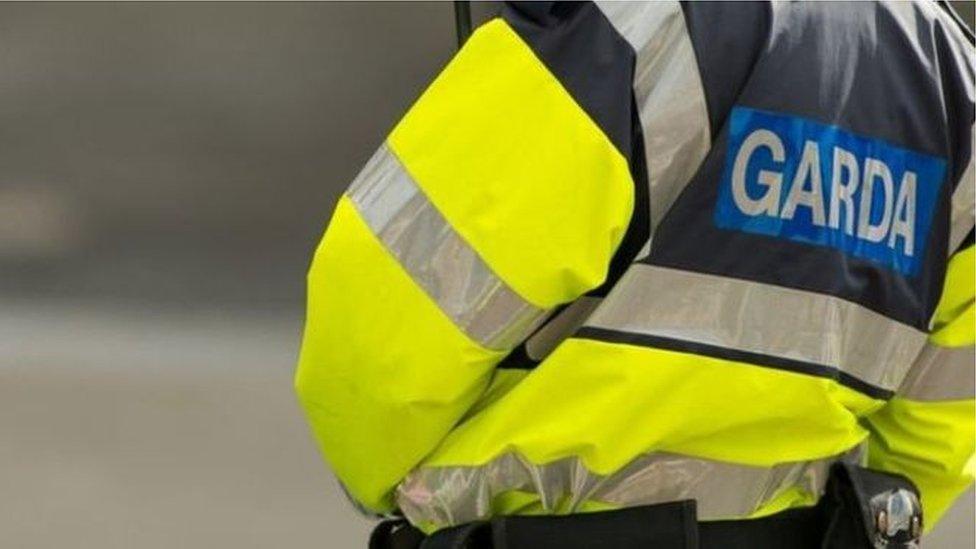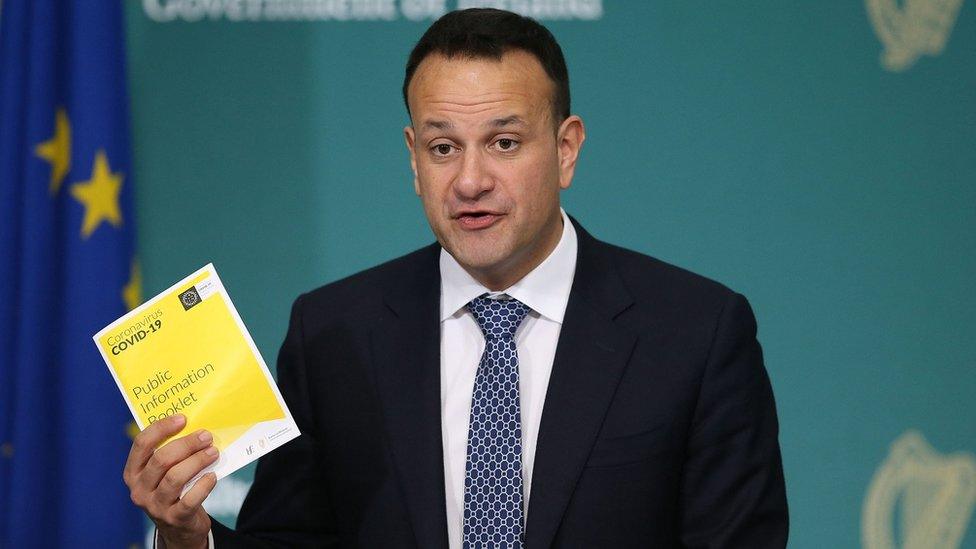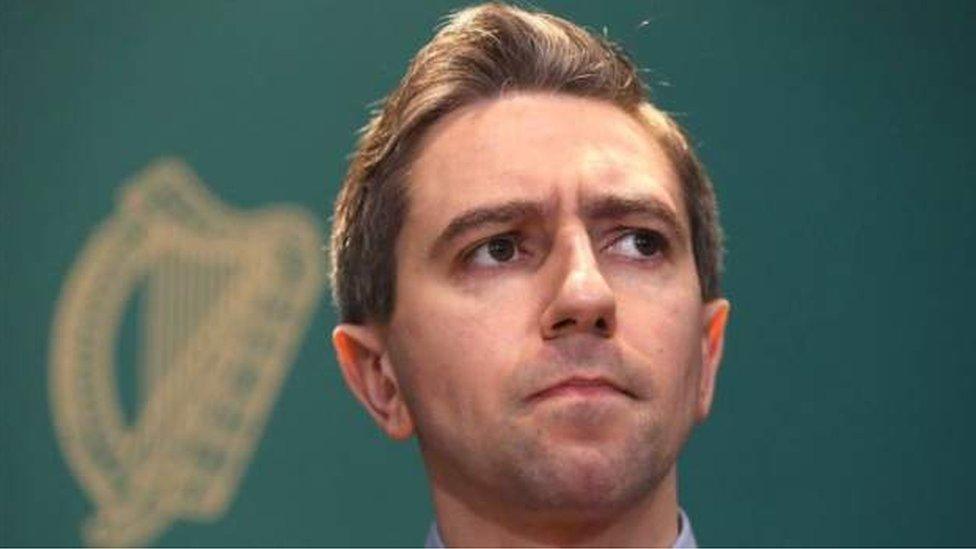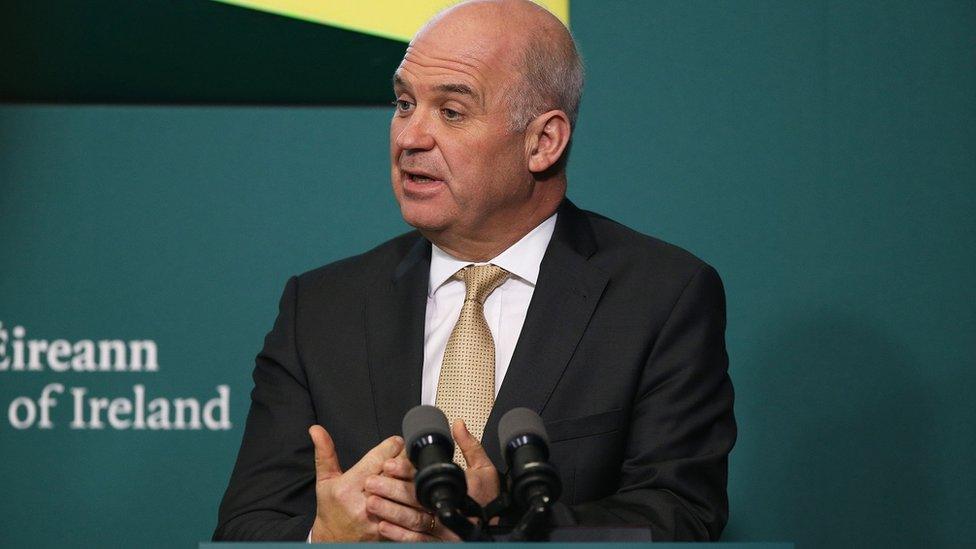Coronavirus: Irish police patrols promised for virus restrictions
- Published

Irish police have promised high-visibility patrols to "encourage" people to adhere to new coronavirus restrictions on public life.
It follows the announcement of further restrictions by Taoiseach (Irish Prime Minister) Leo Varadkar on Friday night.
For two weeks, until Easter Sunday, everyone must stay at home unless buying food or if their work is deemed essential.
The taoiseach said "now is the time for further action".
Twenty two people with coronavirus have died in the country, with 2,121 confirmed cases of Covid-19.

EASY STEPS: How to keep safe
A SIMPLE GUIDE: What are the symptoms?
CONTAINMENT: What it means to self-isolate
HEALTH MYTHS: The fake advice you should ignore
MAPS AND CHARTS: Visual guide to the outbreak
VIDEO: The 20-second hand wash

People have been told they should travel no further than two kilometres from their home unless it is absolutely necessary, or unless it is for food shopping.
On Saturday night, the Irish government published new guidance essential workers, external who, if they cannot work from home, can continue to travel for work.
'Leave popular locations'
In their statement, gardaí acknowledged that the "vast majority of the public are being responsible" and they were asking the public to "continue to be responsible, not to attend popular locations for overly long periods".
Garda Deputy Commissioner of policing and security, John Twomey, said the high-visibility patrols were aimed at providing "re-assurance and social distancing advice to the public".
While gardaí encourage the public to maintain social distancing guidelines, the instruction from the taoiseach for people not to go further than two kilometres from their homes is not mentioned in the statement.
Mr Varadkar said he hoped people would comply with the limit, but gardaí would be available to police it.
At a press conference on Saturday morning, Garda Commissioner Drew Harris said the force is "very much a community-based policy service".
"[The public] should contact us if they see blatant disregard for what the regulations are," he said.
He said officers may stop vehicles and ask people to see "some sort of ID and a description of what their work is".

The taoiseach said "now is the time for further action"
Late on Friday, a new list of essential businesses that can remain open was also published by the Irish government.
They include:
Shops selling food and drinks
Retail of household consumer products for cleaning and safety
Chemists
Shops for medical and orthopaedic goods
Petrol stations and home heating suppliers
Pet shops
Laundrettes and drycleaners
Banks, Post Offices and Credit Unions
Shops selling safety supply equipment
On Saturday morning, Irish Health Minister Simon Harris said the more extreme measures were about "trying to keep people alive".
"The key thing, for the next fortnight, is everybody doing exactly as they are asked, and that means staying at home," he said, speaking to a special edition of RTÉ Radio One's Morning Ireland programme.

Irish Health Minister Simon Harris said the more extreme measures were about "trying to keep people alive"
Mr Harris said legislative powers giving gardaí (Irish police) the right to enforce new measures announced last night are being finalised by the Irish Attorney General and would be signed into law this weekend.
As he announced the new measures on Friday, Mr Varadkar said he was "appealing to every man woman and child to make these sacrifices out of love for each other".
The number of intensive care unit admissions due to coronavirus had doubled in the Republic of Ireland since Monday and transmission in the community now accounts for more than half of all cases.
"Everyone must stay at home other than to travel to and from work, only when work is an essential service, to shop for food or collect a meal, to collect health or medical products, to take brief exercise as long as you adhere to physical distancing," he said.
"All public gatherings are prohibited, sadly this includes social family visits,
"We're not prisoners of fate - we can influence what's going to happen to us next. There is no fate but what we make for ourselves."
Simon Harris told RTÉ's Late Late Show that a list of essential workers would be provided soon.
He added: "We can all feel powerless but individuals have huge power - more than the HSE and the government. If you do as we ask and that is to stay at home, then you will save lives."

Dr Tony Holohan, Ireland's chief medical officier, said they wanted to curb the number of infections
Ireland's chief medical officer, Dr Tony Holohan, said measures implemented so far had been working, but more was needed.
He said the daily increase in cases has slowed down, "relative to what we might have expected a number of weeks ago".
"But this does not tell us that the worse is over - it tells us that we are having some early impact," he said.
Dr Holohan said they wanted to "turn the infection from a community-based one, to a household-based one, and thus slow down its spread and save lives."
Limited travel
The taoiseach said that all visits to hospitals and prisons will cease with some exceptions on compassionate grounds.
He said that people over the age of 70 and some vulnerable people must shield or 'cocoon' during the two-week period.
He also said that travel to offshore islands will be limited to residents.